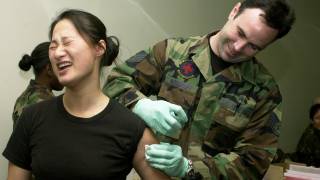Mumps Outbreak Declared in Honduras

Honduran health authorities have declared a mumps outbreak, with over 5,100 cases reported since January 2018.
The most affected municipalities in Honduras are Cortés with 3,788 cases, Metropolitanas de San Pedro Sula (855 cases), Francisco Morazán (69 cases), Yoro (416) cases and Yoro (67) cases.
In contrast, during 2017, there were only 138 mumps cases reported by Honduran health officials.
Lorena Martinez, director of the Metropolitan Regional Health board, said to TelesurTV "that for the last few weeks the Cortes Secretary of Health has been vaccinating in schools and other places with concentrated populations.”
On September 18, 2018, the Honduran Ministry of Health announced an expanded country-wide Measles, Mumps, and Rubella (MMR) vaccination program.
Additionally, the Honduran Ministry of Health said ‘that there are currently 3,266,931 adults within the country susceptible to mumps because they never received the MMR vaccine as children.’
Tens of thousands of U.S. citizens visit Honduras each year for study, tourism, business, and volunteer work. But, the Honduran government lacks the resources to address crime and violence fully, says the US State Department.
On September 20, 2018, the US State Department issued a Level 3 Travel Advisory, saying travelers should ‘Reconsider Travel’ to Honduras, due to increased risks.
But, as of September 21, 2018, the Centers for Disease Control and Prevention (CDC) had not issued a Travel Alert for Honduras.
In the USA, from January 1 to August 11, 2018, 47 states have reported mumps infections in 1,665 people.
Specifically, mumps outbreaks have been reported during 2018 in these states:
Mumps is a contagious disease caused by a virus and is transmitted from an infected person through coughing and sneezing, says the CDC.
The time from being infected with the virus to developing symptoms can be as long as 25 days but is typically within 16-18 days.
The mumps vaccine is administered in combination with the measles and rubella in a two-dose series, which is 88 percent effective at protecting against mumps, while 1 dose is just 78 percent effective, says the CDC.
But, new research indicates the immunity from the MMR vaccination decreases over-time.
A study from the Harvard T.H. Chan School of Public Health found that vaccine-derived immune protection against mumps persists an average of about 27 years, after the last dose.
Which means, in addition to the currently recommended 2 MMR doses early in life, a 3rd booster shot may help sustain immunization among adults.
Most pharmacies offer mumps vaccination services, and appointments can be easily scheduled at Vax-Before-Travel.
The CDC Vaccine Price List provides private sector vaccine prices for general information.
Vaccine discounts can be found here. Both the MMR and ProQuad vaccines contain the protection against mumps.
MMR vaccines, like any medicine, can have side effects, says the CDC. You are encouraged to report negative side effects of vaccines to the FDA or CDC.
Our Trust Standards: Medical Advisory Committee

























